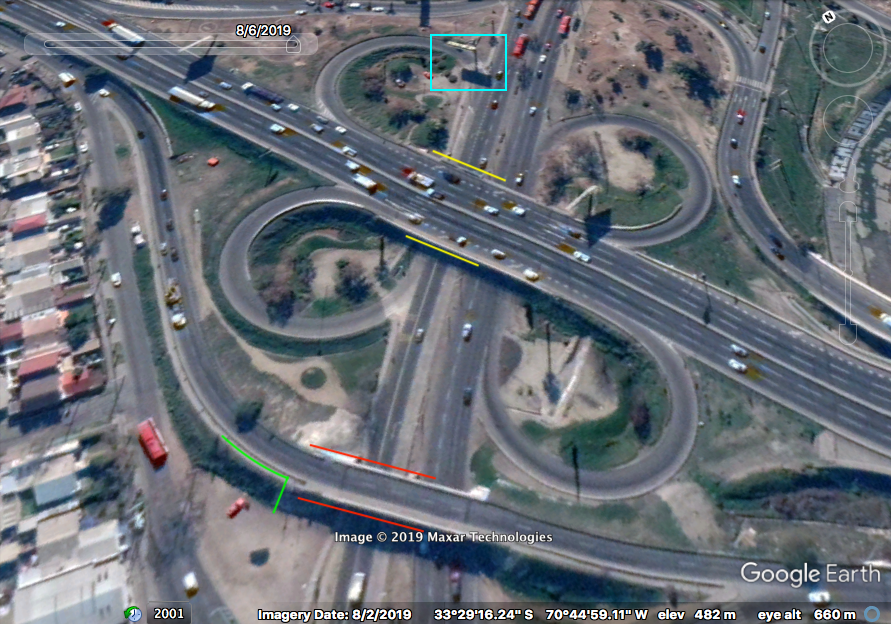Here's a thread of some of his ideas on globalization, financial bubbles, social capital & more
His old work here: medium.com/@byrnehobart
Sign up for new work here: diff.substack.com
For Manhattan project to happen, you needed:
- U.S. out the war but still paranoid about it
- European intellectuals fleeing Europe for U.S.
- People to realize this was important and could be done.
Hard to plan for.
Compliment: Economies of scale. Important for any good w/ high fixed cost and low marginal cost (software)
Substitute: Opportunity cost for innovating vs copying what's already worked elsewhere goes up
If you look at US cars per capita and extrapolate to India, that can work for India. But if you extrapolate everywhere, oil will cost $300 a barrel and we'll have a global depression
When the transistor came out, people thought they'd be good for hearing aids.
Many scientists had their breakthroughs in 20s.
The more advanced the state of the art is in any given field, the more of your time you have to spend just getting caught up—& thus you miss being able to contribute in what some ppl call your peak years.
Older people are also more likely to vote (2 to 1), so politicians cater to their needs.
Had to keep Middle East stable, which meant had to keep everyone else stable too. US dependency on Middle East for oil was an implicit subsidy for the East Asian export driven economic success stories.
But intervening might make sense to ensure the world is on our currency system, in our supply chains and in our cultural sphere.
War for oil was never popular. War for P&G even less.
U.S. shouldn't copy blindly everything that they do anymore than they copied everything the U.S. did.
But they do prove state directed model can work, if competent.
Lesson: Make it high status to be in gov't so great ppl go there.
"There's only one thing worse than working than living under incompetent & corrupt gov't. And that's living under an incompetent & thoroughly honest gov't b/c at least in the 1st scenario, you can pay someone to let you do what you need to do."
Since U.S. is a great place to invest in b/c of human capital, Maybe U.S. should be running a deficit because it's still the best place to put money, whether it's safe money in treasuries or risk capital in startups.
CCP derives political legitimacy from the fact that the economy is growing
When U.S. struggles, they switch the president, but don't question democracy
If China had their own 2008, unclear it'd be the same. Propaganda campaign underway to make it so
Despite many flaws, he's good at evaluating (& memeifying) the weakness of others.
In real estate, he didn't buy a good area and improve it, he buys a disaster area & makes sure lenders are more scared of him defaulting than he is.
It's a strategy.
Geography, demographics, resources, & culture matter.
Don't try to build these top down systems that can apply everywhere, instead adapt to local circumstances.
You can't just say if this country had U.S. institutions, it'd have U.S. GDP per capita.
Unlike startups, you have to worry that incumbents will literally kill you if you threaten them.
Your best case scenario is the Bin Laden option where you have this extremely depressing life where you're waiting to get killed—& then you get killed. Be careful.
Left says we're concerned that people might not be getting ideas from approved sources.
Right says we're don't like these techies doing drugs at Burning Man.
Both worry about 7 yr olds w/ smart phone addictions.
(Caricatures of views)
Companies get less ambitious.
Microsoft got less ambitious after anti-trust, which is partly why it missed mobile but also is least threatening of all tech giants.
The monopolies always pretend to not be monopolies.
What he didn't foresee was that the shift from manual labor to producing food led to longer career investment & thus people delaying getting married until they're older (& thus having less kids)
Progressives have adopted conservative puritan view that man is intrinsically sinful & should subvert himself to the not sinful.
Conservatives have adopted progressive view that good institutions can change ppl (e.g democracy in Iraq).
Just focused on increasing productivity, rather than asking who wins, who loses.
It's anti-partisan in the sense that partisanship tends to arise when we become less productive, that's when politics becomes more zero sum.
Internet means more news outlets that appeal to niche interests.
Social media means it's easy to get the propaganda you want.
You can choose media outlets that are going to outrage you in the precise way you want to be outraged.
Housing shortage means rents go up in line w/ cash comp, not equity comp, & that means that incumbents have a recruiting advantage over startups.
In other words, high real estate selects against early stage companies & selects for later stage companies.
YC realized you could do this in 3 months instead of 4 years—and that equity was a better business model.
Like Stanford, the more it succeeds, the more it becomes a monoculture.
The distribution of extreme violence is such that the trailing mean is always lower than the the actual underlying mean.
He's correct about what a linear extrapolation from the historic data tells you, but wrong about the nature of that distribution.
Increases the chances that you'll be loyal to each other & dedicated to their kids—who are then more likely to do the same for their kids.
Counter argument is that a lot of artistic and intellectual achievement doesn't come from normie families
Boom & bust cycles don't just happen in gov't, but also in private business.
They tend to predict bubbles too early and that's why you'll tend to make more money betting on the bubble & going along for the ride
If you want to positively impact the world, you can either have great ideas or do whatever it takes to implement them.
Someone has to do the latter, dirty work. What's the point of having brilliant theorists whose theories never get implemented?
Kids should find a topic they're passionate about, dive into it in as much depth as possible, just nerd out to the maximum extent possible, & then find something else wants once they've either reached the limit of their abilities or their interest has waned
They can be safe spaces for people who have heretical ideas to mold them until they're ready to be shared.
Safe spaces for people who don't want to be merely mimetic.
Wealth gets more unequal, but consumption gets more equal (which is why the gap btw a billionaire's life and our lives is smaller than it used to be).
Overtime, wealthy end up w/ larger share of country's resources, until a war or plague and that all gets wiped out.
Coordinate behavior at scale to pursue a distant objective.
They both coordinate a lot of behavior that is optimal when it happens in parallel, but not that useful if it happens in sequence. (E.g Apollo)
But the ones who got optimistic at the wrong time lost a lot of money.
Credit bubble—future will look exactly like the past only more. Ppl who owe us money will continue to service the debt. We all try to be the same
Like financial banks, there are social capital "banks" willing to lend social capital to ppl who don't need it and not willing to risk social capital on new & risky people
Need to incentivize social capital investing
If there are just more people willing to vouch for more people, then you end up with too many bad ideas getting funded.
And you also end up with people optimizing for getting recommended versus optimizing for building something good
So in that sense of status market is maybe analogous to the gold standard where there can be inflation and deflation and they're actually somewhat exoticness to the system
stitcher.com/podcast/villag…
stitcher.com/podcast/villag…
Sign up here to read more. Just as good as Stratechery IMO: diff.substack.com





